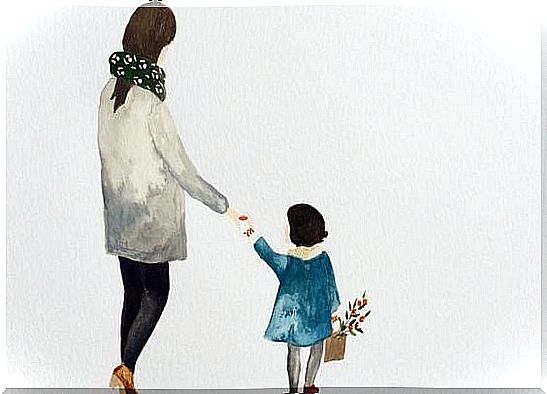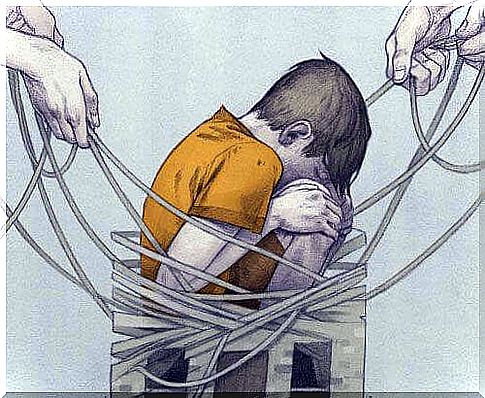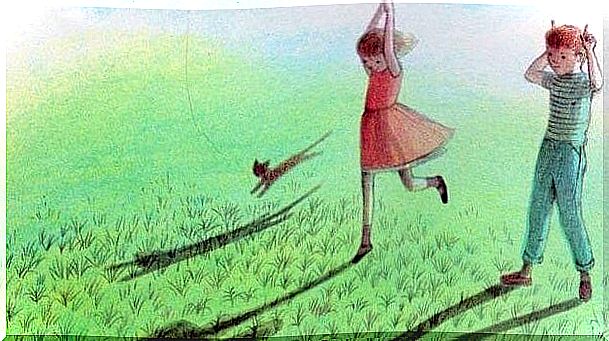Congratulate In Public And Correct In Private, But Without Hurting

Highlight the virtues of your children in public, praise them when they deserve it, but correct their mistakes in private. The screams, the loud reproaches and the always recurring comparisons with other children, negatively crystallize in the self-esteem of the little ones.
The issue of how to correct our children when we are in a public context is as complex as it is delicate . There are mothers and fathers who simply do not hesitate to stage an entire show based on shouting and criticism, without thinking about the consequences that this may have. A bad behavior, a suspense or a word out of place sometimes unleashes a drama that is difficult to forget.
However, there is also usually another type of situation that is really particular and that has to do with others. An example: we go with our children to a shopping center and, for whatever reasons, their attitude is not appropriate. Instantly, admonitory glances arise around, like expectant birds awaiting sanction. Waiting for the iron discipline where it is assumed that with a word everything is solved.
If this does not happen, immediately that subtle label of “bad father” or “bad mother” appears . This social pressure, at times, does not take into account the complex labyrinths involved in educating a child, or even the particularities of each child. We must scold, there is no doubt, and we must correct, of course, but we must do it well.
It is essential to educate with intelligence, affection, intuition and with enough success not to hurt, nor to intensify negative emotions even more. We suggest you reflect on it.

Reproaches in public: subtle ways of hurting
With children it happens as in any other relational dynamic. The person accustomed to correcting or punishing his partner in public in an accusatory, derogatory or ironic tone, hurts. The manager who punishes his employee before others will never be a good leader.
Once again, we have to make use of Emotional Intelligence. A reproach made before a whole gallery of spectators violates our self-esteem. In this way, our self-esteem can be undermined. Emotional intelligence will help us improve our relationship with others and know how and when to say things.
As the psychologist Daniel Goleman states, “criticism, like all useful feedback, should point to a way to solve the problem. Otherwise, the recipient may be frustrated, demoralized or unmotivated . ” If we add public criticism to this, the child can be highly damaged. So if a fault must be pointed out to someone, better in private and offering a way to solve the problem.
A good pedagogy
And when we talk about education the subject is even more painful. Some teachers, for example, commit the malpractice of correcting the student’s error publicly and with a contemptuous air: “it is clear that you are never going to pass my subject.” In turn, many mothers and fathers tend to thread the upbringing of their children through those sharp needles with the thread of bad pedagogy.

A common mistake is to compare the behavior of a child with that of a brother or with that of another child : “your brother is smarter than you”, “your classmates are smarter and you are always last in everything”. Comparisons are not the best method of motivating the child. How about we try to listen to you and try to build on your strengths? Each child is different, with their concerns and interests.
Likewise, it can also affect their self-esteem to discuss private aspects of the children with other people in front of the child, as if the child could not hear, see or feel. It is a common habit that can negatively influence the little ones. You have to consider this.
There is another very non-pedagogical strategy: correcting between shouts, focusing exclusively on the fault or the mistake made, but without educating and without offering improvement or guidance strategies. The one attitude to be avoided.
Keys to discipline in public
According to a study carried out by the “Family Research Laboratory” at the University of Hampshire, scolding our children badly and in public leaves consequences. The negative emotions that these children will have every day are intensified as well as the frequency of challenging behaviors. So these simple tips are worth keeping in mind:
- Put aside the judgments of others. Do not feel pressured by those around you at that moment, when you are in a supermarket, the doctor or a street. It is not to them that you should show that you are a good father, a good mother, but to your child.
- You may be embarrassed at that moment by your child’s misbehavior, but don’t get carried away with frustration. Make use of emotional intelligence and empathize with your child to understand what is happening to him and why he shows this behavior.
- Instead of giving an order with a shout, offer options that invite the child to reflect: “You have two options, either you get up right now or you stay on the ground forever while Dad and I go to the park.” Once he obeys you, remember: correct the misconduct in private. Now, just finish with said behavior.

Final reflection
Keep in mind that a child is made of very delicate material. His emotional world is sometimes chaotic and explosive. However, it is our task to untangle, alleviate, promote control strategies and self-knowledge so that it matures in happiness. We must be aware that with any gesture or word out of place, we can leave a huge mark on the child.
Be patient and understand their emotions. Understand that the same things that offend you can also hurt him or her. So remember, you better praise in public and correct in private, but without hurting.









